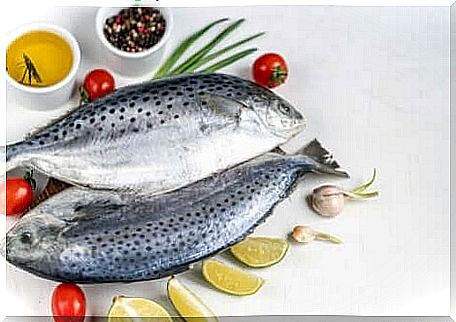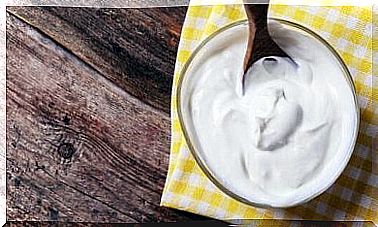Four Diets Supported By Research

Today, we have a myriad of different diets at our disposal. Most of them either do not allow a particular food or emphasize its importance. But… are the claims about their benefits really true? And what do the studies say about them? What are the four diets that the studies support?
It is true that a large proportion of people have embarked on a particular diet at some point in their lives, especially the so-called for fashion diets. In addition, this is often done without first seeking advice from a nutritionist.
However, there are a few diets that even seem to have health benefits, according to research. What are they and why are they recommended? In the article below, we answer this question.
Four diets supported by research
A healthy diet is not one that only helps you lose weight. If we are talking about general well-being, it is important to know that the diet must be varied and complete from a nutritional point of view. Below, we present four diets that the studies support.
Mediterranean diet
The Mediterranean diet is considered to be one of the diets with the most research evidence of health benefits. It has been found to have a significant impact on the prevention and treatment of many different diseases. In the Mediterranean diet:
- High consumption of plant-based foods such as fruits, vegetables, beans, whole grains and nuts is preferred.
- A moderate daily intake of dairy products such as yogurt and cheeses is recommended.
- Emphasis is placed on the use of olive oil as the main source of fat.
- Excessive consumption of water and natural beverages such as tea is recommended.
- Reasonable intake of unprocessed meat, fish and eggs is recommended. At the same time warn of processed meat.
- Restrict or completely avoid industrially processed foods.
Adherence to this diet significantly improves health. In particular, it appears to combat the problems associated with chronic inflammation. Of these, we can mention the following:
- Metabolic syndrome
- Diabetes
- Cardiovascular diseases
- Neurodegenerative diseases
- Cancer and others

DASH diet
One of the diets supported by the studies is the DASH diet (Dietary Approach to Stop Hypertension). This diet includes recommendations from the American Heart Association. The goal of the DASH diet is therefore to lower blood pressure and prevent heart disease.
The general instructions are as follows:
- Excessive consumption of fruits, vegetables, legumes and low-fat dairy products.
- Scarce eating of salt and red meat.
- Little or no consumption of processed foods, including sugars, salt, and bleached flour.
This diet is similar to the Mediterranean diet, but there are also differences. The Mediterranean diet recommends the addition of polyunsaturated fats (olive oil and nuts) and does not particularly emphasize the eating of low-fat dairy products.
Some studies suggest that the DASH diet would also provide other types of health benefits, such as bone metabolism and urinary homeostasis.
The Atlantic diet
The Atlantic diet is typical of the Atlantic countries. Just like its “sister” Mediterranean diet, it also seeks to prevent heart disease. It consists of the following:
- Fish and Seafood are the main ingredients in the diet.
- Vegetables and leafy vegetables are eaten in abundance.
- Cereals, legumes and potatoes are eaten as the main source of carbohydrates.
- Red meat is eaten in moderation.
- Olive oil is the main source of fat, especially as a salad dressing.

FODMAP diet
The abbreviation FODMAP comes from the words “Fermentable Oligo-, Di-, Mono-saccharides And Polyols”. Foods that contain these properties are eliminated in the FODMAP diet.
It is often used in addition to the treatment of intestinal diseases such as irritable bowel syndrome . It is generally recommended when symptoms of the disease occur.
Foods that should be avoided until symptoms are relieved are:
- Legumes such as chickpeas, lentils and soy
- Cereals such as wheat, barley, rye and amaranth, and their derivatives
- Whole milk products
- Certain sweeteners, honey, and high fructose corn syrup
- Soy beverages, industrial juices, rum and white wine
- Garlic, onion and some other vegetables
- Canned fruits, plums, pears, watermelon, etc.
Allowed foods in this diet are:
- Corn Starch, Oats, Rice, Corn, Millet, Sorghum and Quinoa.
- Sugar, sweeteners that don’t end up with the letters “-is”.
- Tofu.
- Tomato, carrot, zucchini, chard and other vegetables.
- Melon, orange, cantaloupe, grapefruit and other fruits.
- Lactose-free milk, goat cheese.
- Oils, such as olive oil and rapeseed oil.

Four diets supported by research
All of the above diets offer health benefits that are supported by research. However, even these diets should always be nutritionally balanced so that they lack nothing and have nothing too much. This is why you should always discuss with your nutritionist the diet that is right for you.









